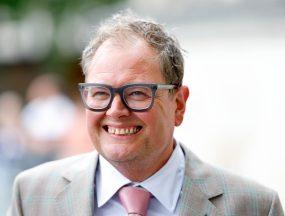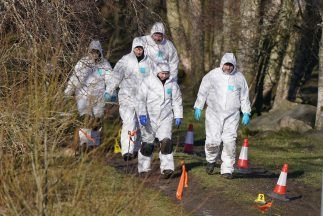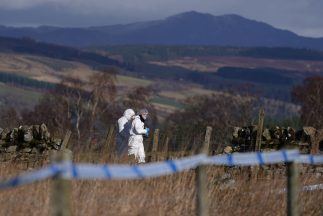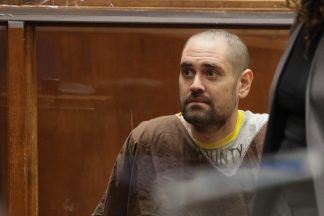Doctors and scientists in Tayside have undertaken research which has uncovered information which could lead to new treatments of ovarian cancer.
The research between NHS Tayside and the University of Dundee has provided important information about how ovarian cancer cells become resistant to certain treatments and how this resistance could be reversed.
The team of researchers was led by Dr Michelle Ferguson, consultant medical oncologist with NHS Tayside and Dr Gillian Smith, senior lecturer in cellular medicine at Dundee’s School of Medicine.
Through their previous research, the team knew that levels of a gene called FGF1 plays a role in resistance to the chemotherapy drug carboplatin, which is used to treat ovarian cancers.
However, their latest research has discovered that the gene can be manipulated to reverse drug resistance and improve responses to chemotherapy in patients.
Dr Ferguson said: “Carboplatin is the most effective drug for women with ovarian cancer but, over time, most ovarian cancers stop responding to the drug, which then limits treatment options.
“This exciting research adds to our understanding of how cancer cells become resistant to drugs such as carboplatin and demonstrates that even when cancer cells are resistant, this can be reversed.
“Understanding the biology of how drug resistance develops in cancers could also lead to the development of new treatments for cancer patients and make the treatments we already have more effective.
“Many of my patients donated samples to progress this research and I would like to thank them for their support. Without their help, we would not be able to carry out important research like this which we hope will benefit patients.”
Dr Smith added: “This work, carried out by PhD student Hugh Nicholson and colleagues, highlights the benefit of combining laboratory-based and clinical research in our translational ovarian cancer research programme.
“Understanding why some patients stop responding to chemotherapy allows us to extend our research programme to predict which patients are most likely to respond to treatment and to propose new drug combinations to combat treatment resistance for future clinical trial evaluation.
“We need to know how resistance develops to allow us to stop this happening, or to delay the onset of resistance as this would allow us to extend the length of time we can use current chemotherapy drugs which work very well, until patients become drug resistant.
“If we can understand how resistance develops, we can think about new treatment approaches using additional drugs to block the resistance mechanism, effectively developing new combination chemotherapy approaches where one drug kills the cancer cells and the other drug blocks resistance.”
The team has longer term aims for their research and is already considering next steps for the programme.
Dr Smith explained: “When we can better understand resistance mechanisms, we can then develop ‘biomarker’ tests, where we could look for the presence of a marker protein in a blood sample.
“Using this approach would allow us to monitor patients for the onset of drug resistance, or to screen patients for these markers before chemotherapy was prescribed. These approaches would avoid patients being exposed to very toxic drugs if they were unlikely to respond.”
Follow STV News on WhatsApp
Scan the QR code on your mobile device for all the latest news from around the country


 iStock
iStock

























